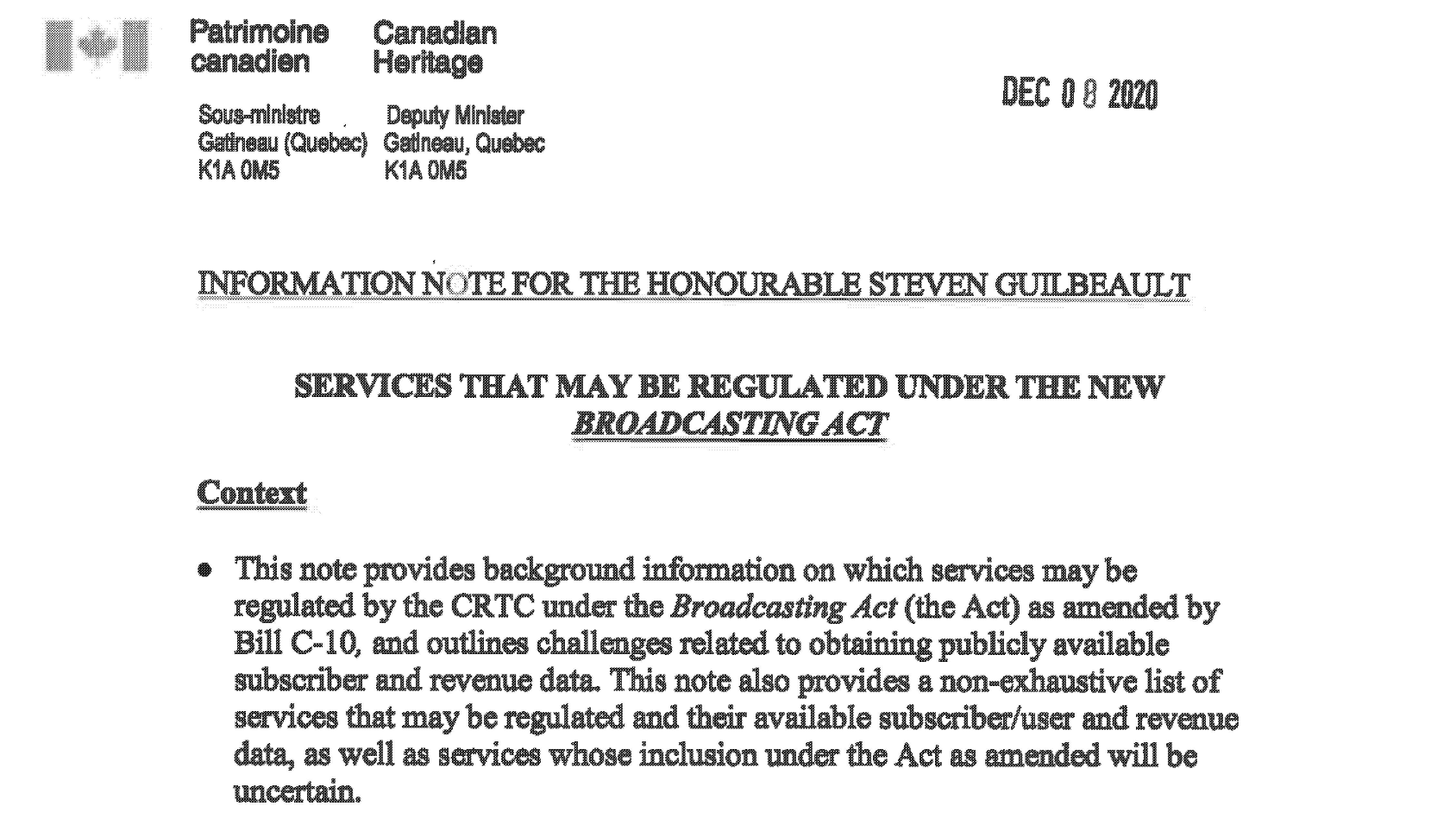Bill C-56, the anti-counterfeiting bill that opens the door the Canadian implementation of the Anti-Counterfeiting Trade Agreement, has been referred to the Industry Committee for review. The government imposed time allocation on the bill to move it to committee. The debate on the bill yesterday suggested that all parties support […]

Canadian Heritage Memorandum, December 8, 2020, ATIP A-2020-00498
Bill C-10
Canadian ACTA Compliance Bill Inches Forward
Earlier this year, Industry Minister Christian Paradis introduced a bill aimed at ensuring that Canada complies with the discredited Anti-Counterfeiting Trade Agreement. The bill raises a host of concerns including granting border guards increased powers without court oversight or review. The bill had not been heard from since its introduction, […]
Industry Committee Report on Intellectual Property: A Case of Policy Laundering for CETA and TPP
The Standing Committee on Industry, Science and Technology released its report on the Intellectual Property Regime in Canada yesterday. The report is the result of lengthy hearings that focused on a wide range of IP issues including patent reform, trademarks, counterfeiting, and pharmaceutical protection. While most the recommendations are fairly innocuous – the committee identifies many issues for further study – there are essentially three main legislative reform recommendations. One involves limiting the scope of official marks, which appears to be the result of comments from Dalhousie law professor Rob Currie (echoed by CIPO’s Sylvain Laporte) expressing concern with governmental abuse of official marks in a way that may stifle innovation.
The other two are particularly interesting as they set the stage for the Canada – EU Trade Agreement and the Trans-Pacific Partnership. First, the report recommends anti-counterfeiting measures similar to those required by CETA and found in Bill C-56. Should criticism arise over Bill C-56 or CETA, the government will likely point to this report in support.
The second involves a classic case of policy laundering as the government has manufactured support for CETA and Trans-Pacific Partnership (TPP) provisions that were not even raised at committee. The report recommends:
What’s Really Behind Canada’s Anti-Counterfeiting Bill?
With only limited fanfare, earlier this month Industry Minister Christian Paradis introduced Bill C-56, the Combating Counterfeit Products Act. Since no one supports counterfeit products – there are legitimate concerns associated with health and safety – measures designed to address the issue would presumably enjoy public and all-party support. Yet within days of its introduction, the bill was the target of attacks from both opposition parties and the public.
The NDP raised the issue during Question Period in the House of Commons, accusing the government of trying to implement the widely discredited Anti-Counterfeiting Trade Agreement (ACTA) “through the backdoor.” The public also picked up on the issue, noting that the bill appears to be less about protecting Canadians and more about caving to U.S. pressure (the U.S. called on Canada to implement ACTA on the same day the bill was tabled).
My weekly technology law column (Toronto Star version, homepage version) notes the concerns associated with the bill fall into two main categories: substance and ACTA implementation. The substantive concerns start with the decision to grant customs officials broad new powers without court oversight. Under the bill, customs officials are required to assess whether goods entering or exiting the country infringe any copyright or trademark rights.
What’s Really Behind Canada’s Anti-Counterfeiting Bill
Appeared in the Toronto Star on March 9, 2013 as What’s Really Behind Ottawa’s Anti-Counterfeiting Bill? With only limited fanfare, earlier this month Industry Minister Christian Paradis introduced Bill C-56, the Combating Counterfeit Products Act. Since no one supports counterfeit products – there are legitimate concerns associated with health and […]






